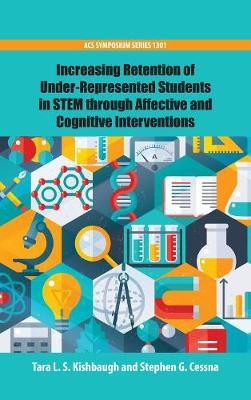Increasing Retention of Under-Represented Students in STEM through Affective and Cognitive Interventions(English, Hardcover, unknown)
Quick Overview
Product Price Comparison
The first section of the book describes some of the underlying theories for understanding how and why students are or are not retained in science. As this field is quite broad, this section does not provide a comprehensive overview of all possible theories used to understand this problem, but instead it seeks to provide a rationale for the use of a specific theory to ground the nature of the interventions used to address poor retention of STEM majors. In addition,this section addresses some of the nuances that are important to consider when applying a theoretical framework at your institution. In the second section, these theories are elucidated by case studies from diverse institutions, which have implemented strategies to address the problem of poor retention at their schools. In addition to diversity of institutions, the projects themselves are at different stages. Some, such as Swartz and Gregg-Jolly's chapter, describe a project that is very well established. While others, such as Kishbaugh's project, are in early stages. Some of these interventions are aimed at generating andtesting better pedagogical tools and supports for a wider audience of students, such as Greco's description of the studio model for general chemistry and Hollinsed's approach to testing in general chemistry. Others use peer tutors, peer mentors, and/or diversity-responsive teaching materials. Othersdescribe mentoring, intrusive advising, or cohort models. All S-STEM projects involve cohort building; examples can be found in Kerrigan's chapter or Blecking's chapter. Perkins's project also describes the importance of addressing stereotypes in science. These case studies demonstrate a balance of attention towards affective dimensions, such as self-efficacy and identity, with evidence-based teaching methods.


